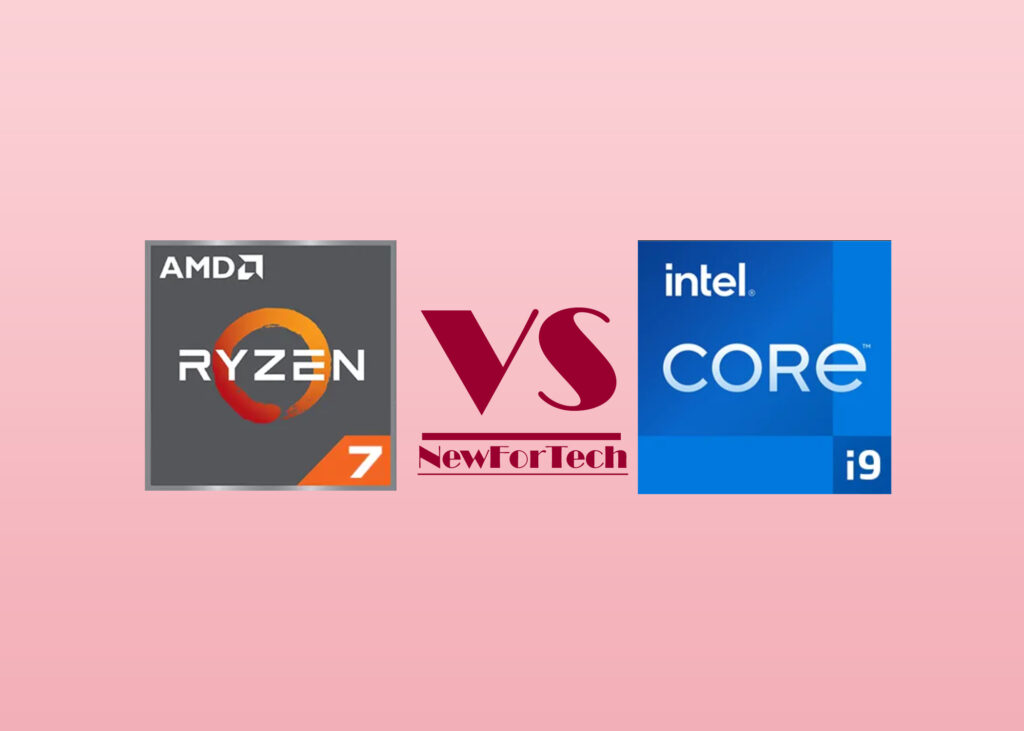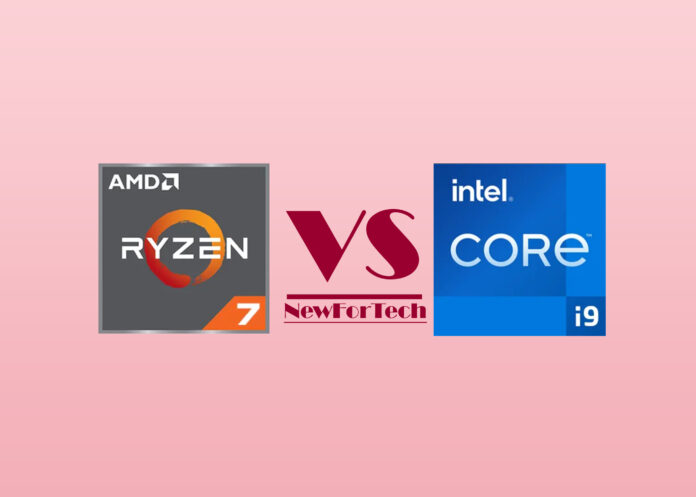When the dust settles between the Intel Core i9-14900K and AMD Ryzen 7 7800X3D, who emerges as the victor? Let’s delve into the specifications of each contender.
Intel Core i9-14900K boasts 16 Efficiency Cores, 8 Performance Cores, and a total of 32 threads. The Base Clock for Efficiency Cores is 2.4 GHz, while Performance Cores kick in at 3.3 GHz. Boost Clock reaches 4.4 GHz for Efficiency Cores and an impressive 5.6 GHz for Performance Cores. The processor packs a substantial 68MB of cache and operates at a TDP of 125W.
Intel Processor
Intel’s flagship processor excels in performance, even though it offers minimal generational improvement. Its remarkable features include no price hike, low idle power usage, and an impressive peak clock speed of 6.0GHz. However, it has a downside of running hot.
Intel Core i5-13600K enters the ring with 8 Performance Cores, 16 threads, a Base Clock of 4.2 GHz, a Boost Clock at 5.0 GHz, and a total cache of 104MB. Its TDP stands at 120W.
Now, let’s turn our attention to the AMD Ryzen 7 7800X3D, a worthy successor to the previous generation’s best gaming processor. It faces off against Intel’s finest in the gaming arena.
AMD Ryzen
The AMD Ryzen 7 7800X3D shines with outstanding gaming performance, impressive energy efficiency, and a reasonable midrange price point. Nevertheless, it lags behind competing chips in non-gaming tasks, and the 3D V-Cache feature is less effective at higher settings.
Choosing between the 14900K and 7800X3D for your gaming PC isn’t a straightforward decision. While Intel’s flagship processor offers formidable technical prowess, AMD’s 3D V-Cache technology introduces a new realm of gaming performance.
The Intel Core i9-14900K impresses with raw performance, claiming the title of the best consumer processor. However, it feels more like an overclocked 13900K than a true generational leap.
In contrast, our review of the AMD Ryzen 7 7800X3D highlights its ability to “hold its own against Intel’s best for less.” Yet, Intel has introduced a new generation of chipsets, with the 14900K leading the charge.
In the end, the comparison between the 14900K and 7800X3D unveils strengths and weaknesses in both models. Determining the superior choice requires careful consideration, making the 14900K vs. 7800X3D matchup a decision worthy of your time and money.

Pricing: 14900K vs. 7800X3D
When it comes to price, the Intel Core i9-14900K stands as the pricier option at $589 / £448 / AU$854. Its position as the 14th Gen flagship justifies this, maintaining consistency with the 13900K’s pricing from a year ago.
In contrast, the AMD Ryzen 7 7800X3D enters at a more budget-friendly $449 / £341 / AU$651, positioning itself in the upper mid-range of the Zen 4 lineup. This places Team Red’s offering at a notably more affordable point, a full $140 / £107 / AU$203 cheaper, which equates to around a 23% cost reduction.
In terms of value for your money, the 7800X3D shines. Priced under $450 / £350 / AU$700, it boasts an 8-core (16-thread) setup and a generous L3 cache. On the other hand, the 14900K, though undeniably powerful, fails to introduce significant innovation over the 13900K and comes with a considerably higher price tag.
- Result: AMD Ryzen 7 7800X3D takes the price-performance crown.
14900K vs. 7800X3D: Specs & Features
Both the 14900K and the 7800X3D embody iterative hardware philosophies. The former, a third-generation Intel hybrid architecture, refreshes Raptor Lake. In contrast, the latter reintroduces the 3D V-Cache and lowers the TDP from the original 5800X3D model from last year. Initially, the Intel Core i9-14900K appears more impressive.
| Intel Core i9-14900K | AMD Ryzen 7 7800X3D | |
|---|---|---|
| Performance Cores | 8 | 8 |
| Efficiency Cores | 16 | 0 |
| Threads | 32 | 16 |
| P-Core Base Clock | 3.0GHz | 4.2GHz |
| P-Core Boost Clock | 5.8GHz | 5.0GHz |
| E-Core Base Clock | 2.6GHz | N/A |
| E-Core Boost Clock | 4.00GHz | N/A |
| L3 Cache | 36MB | 96MB |
| TDP | 125W | 120W |
| Motherboard Socket | LGA 1700 | AM5 |
| Max Temperature | 100°C | 89°C |
- Winner: Intel Core i9-14900K
Intel Core i9-14900K vs. AMD Ryzen 7 7800X3D: Performance
Performance reigns supreme in the 14900K vs. 7800X3D duel. Price and specifications play a role, but it’s the actual performance that matters. In standard synthetic benchmarks, both CPUs excel in single-core and multi-core tasks. However, the Intel Core i9-14900K emerges as the overall winner.
The performance gap, especially in multi-core tasks, is substantial. Cinebench R23 Multi-core showcases a significant 98% difference, highlighting the effectiveness of the extra 16 efficiency cores in Intel’s favor.
In benchmarks like CrossMark, Blender, V-Ray 5, and PugetBench, the Intel Core i9-14900K maintains a strong lead. While the 7800X3D holds its own, it can’t quite match the performance.
Gaming, on the other hand, is where the AMD Ryzen 7 7800X3D shines. Despite its lower core count, the Zen 4 chipset outperforms the 14900K in CPU-bound titles thanks to its extra L3 cache. The 14900K still posts solid results, particularly in Civilization VI, but this is an area where the 7800X3D prevails.
Thermal performance between the 14900K and 7800X3D is comparable in terms of minimum operating temperatures, but the Intel chipset runs considerably hotter and consumes significantly more power, over triple that of AMD’s latest. Impressively, Team Red’s chipset peaks at just 76.775W, a far cry from Intel’s 351.097W.
In summary, the Intel Core i9-14900K boasts superior single-core and multi-core performance. This extends to creative and productivity tasks, favoring Team Blue. However, the 7800X3D excels in gaming performance due to its second-generation 3D V-Cache.
- Winner: Intel Core i9-14900K

Final Verdict: Intel Core i9-14900K vs. AMD Ryzen 7 7800X3D
In the comparison between Intel Core i9-14900K and AMD Ryzen 7 7800X3D, the former excels overall. It offers impressive performance in creative tasks, productivity, and daily operations, making it ideal for power users and creators pushing the envelope. Its gaming prowess is commendable, with consistent performance.
However, if your goal is to construct the ultimate gaming PC, the AMD Ryzen 7 7800X3D takes the lead in raw gaming performance. It outperforms pricier, more potent competitors, delivering top-tier gaming without crossing the $450 / £350 / AU$700 threshold. This represents outstanding value for your investment.
Both chipsets pair well with top-tier graphics cards and RAM, so your choice depends on your rig’s purpose. Opt for Team Red if gaming is your primary focus. For an all-encompassing setup catering to video production, 3D modeling, and demanding tasks alongside gaming, the 14900K stands as the superior choice.


